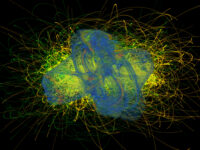A lot of us have people in our lives who seem to experience one chaotic situation or crisis after the next. After a while, you might think that this person, on some level, enjoys the chaos and unpredictability of these situations. Indeed, it may be true that people manufacture chaos in their lives because they thrive on unpredictability. Based on different personality types, it certainly seems that some people innately value and desire change, spontaneity, drama, and unpredictability. These are all hallmark characteristics of the abstract term, “chaos.” But beyond that, is it possible to actually be addicted to chaos?
According to expert consensus about the reward system in the brain, people can be addicted to almost anything, not just substances. As with drugs, many high-risk behaviors such as gambling, sex, pornography, and shopping can hijack the reward pathways in our brains to elicit those same addiction patterns and behaviors. Currently, experts can only support “chaos addiction” with anecdotal evidence. However, individuals who claim or appear to be addicted to chaos often express those same addictive and compulsive life patterns. In fact, the phenomenon of chaos addiction is common among people recovering from substance use disorders. There is speculation that this occurs when people become accustomed to the level of chaos present in their lives during an active addiction; the subsequent lack of chaos in their lives during sobriety can be anxiety inducing. In other words, frequently being placed or placing oneself in tumultuous situations may cause these situations to become one’s comfort zone, therefore making the unpredictability of life the only predictable thing.
According to expert consensus about the reward system in the brain, people can be addicted to almost anything, not just substances.
The idea of a chaos addiction also appears in other demographics, like entrepreneurs and business owners. Addiction to work, or workaholism, is a more established phenomenon within the psychological and medical communities. However, some elements of workaholism are similar to chaos addiction, including compulsive tendencies, the inability to relax, the need for action, and constantly being in a mental state of crisis management. The two phenomena could be closely related, or chaos could simply be one element of workaholism.
It is important to note that the specific theory of addiction to chaos has not been tested nor proven in scientific research and empirical studies. Given that addiction and recovery are complex and nuanced topics, delving further into research regarding chaos addiction might provide more insight into the complex thought patterns present in addiction as a whole.
Image Source: Picpedia.org





